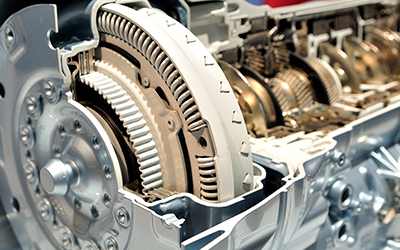Posted on Sep 9, 2024
File ID 103727657 | © Loraks | Dreamstime.com

Imagine your car behaving like it's having a bad day: sluggish, unresponsive, and not itself. The culprit? Often, it's old or inadequate transmission fluid.
At the heart of Centennial auto repair wisdom is a simple truth: your vehicle's health heavily depends on the vitality of its transmission fluid.
Regular changes are not just recommended; they're crucial to avoid the mechanical melancholy that could lead to costly repairs.
Transmission fluid is essential for your vehicle's transmission, keeping gears shifting smoothly and efficiently.
However, as time passes, the fluid can degrade, lose its thickness, and reduce its protective properties, potentially causing more friction and overheating. Regular maintenance ensures your transmission stays in top shape.
In the bustling streets of Centennial, automotive repair experts consistently highlight how regular maintenance can extend your car’s performance and lifespan.
Mechanics from auto shops near me in Centennial often share stories of vehicles that came in too late—transmissions irreversibly damaged due to neglected fluid changes.
"It’s like running a marathon in old sneakers," jokes one local mechanic. "Sooner or later, you're going to feel it, and it's going to hurt—your car and your wallet!"
Not all vehicles are the same, and neither are their maintenance needs. Depending on your vehicle type, the manufacturer's guidelines, and driving habits, the interval you should change your transmission fluid can vary significantly.
Whether you drive a heavy-duty truck or a compact sedan influences how quickly your transmission fluid degrades.
Your vehicle deserves the best care possible, and regular transmission fluid changes are a cornerstone of good vehicle health. Don't let neglect ruin your day or your budget.
Swing by Waters Auto Repair for a consultation and ensure your ride stays smooth and efficient. Whether it's a routine check or a complete fluid change, we're here to help at every turn in Centennial. Remember, an ounce of prevention is worth a pound of cure for auto maintenance.